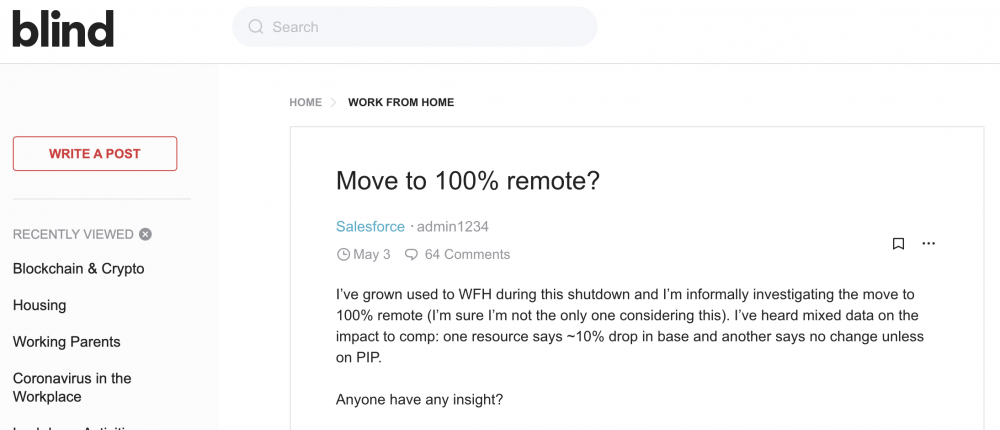1/3 Of Silicon Valley Are Concerned Remote Work Will Impact Career Progression
There have been concerns that new hires during this all-remote period don’t have the benefit of building connections, however, only a ⅓ are concerned. Experts fear the cultural decay during this fully digital period.
As things slowly show signs of normalcy, Blind, the anonymous professional network with 3.6 MM professionals, wanted to know what they perceived to be the downfalls of remote work.
The users were asked (05/29-06/05) ~4,500 Answers:
- Do you prefer remote work to an office setting?
- Personally, what is the biggest challenge of remote work?
- Are you concerned that the new work dynamics will impact your career progression?
Key Learnings:
- 53% Of professionals prefer remote work to an office setting
- New hires only marginally find remote work less favorable (48%)
- The biggest challenges of remote work range from at-home distractions, no work-life balance, isolation, and lack of networking.
- ⅓ Of Facebook professionals find at home distractions to be the biggest challenge of remote work
- 30% of Apple professionals find “no work-life balance” to be the biggest challenge of remote work
- 24% of Google professionals find isolation to be the biggest challenge of remote work
- 24% of new hires find isolation to be the biggest challenge of remote work
- ⅓ of professionals are concerned that the new work dynamics will impact their career progression
- 41% of Uber professionals are concerned about their career progression
- 35% of new hires are concerned about their career progression
We have heard different variations of this for months, but times are changing. The way we communicate, learn, and grow with one another has become digitized. One Salesforce user states, “I’ve grown used to WFH during this shutdown and I’m informally investigating the move to 100% remote”. These findings have implications for employers to help prevent burnout and preserve morale in the increasingly digital workplace. Download the full study here.
